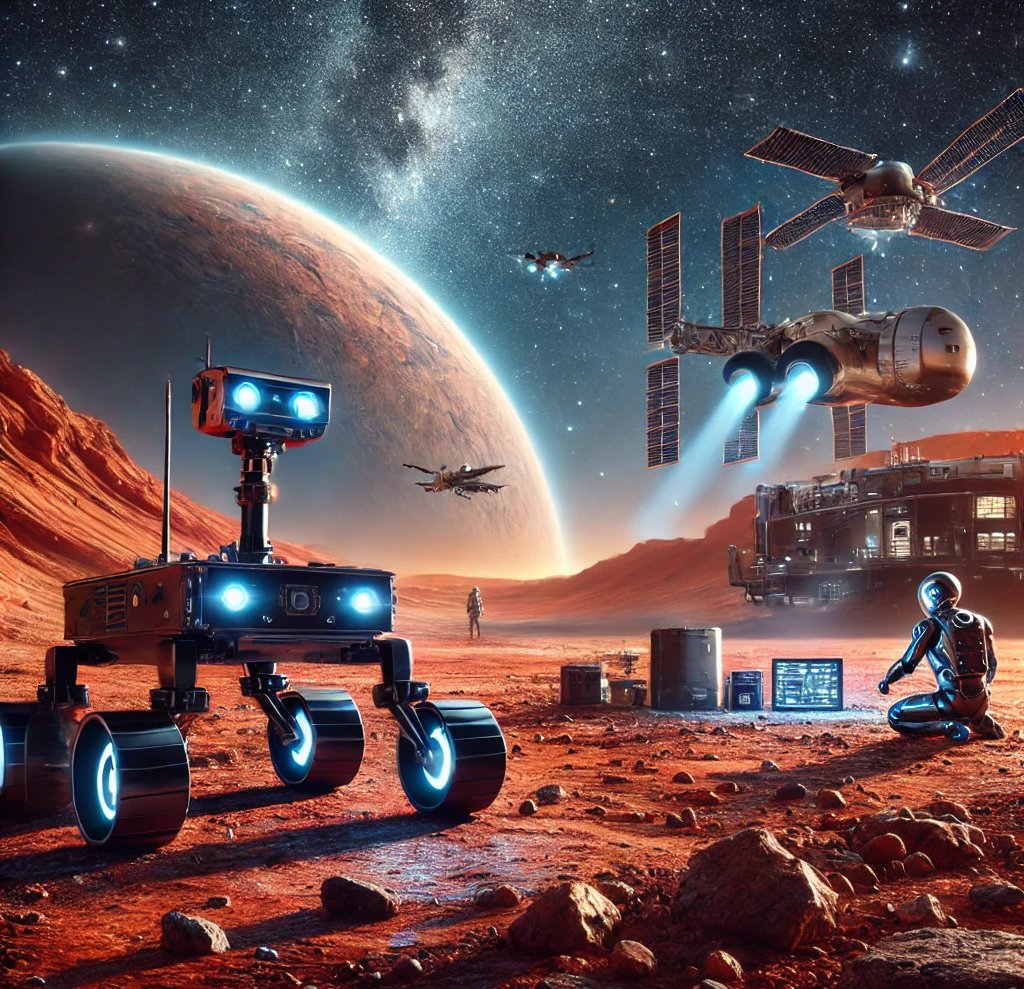Exploring the Universe with AI: The Future of Space Exploration
AI is revolutionizing space exploration, from analyzing distant galaxies to guiding rovers on alien planets. Discover how artificial intelligence is pushing the boundaries of our understanding of the cosmos.


AI’s Role in Unlocking the Mysteries of Space
The vastness of space has always been both a challenge and an inspiration for humanity. With trillions of stars, planets, and phenomena to study, traditional methods of exploration are no longer sufficient. Artificial intelligence (AI) is stepping in to transform space exploration, enabling us to analyze, navigate, and discover the unknown like never before.
1. Enhancing Data Analysis
Space missions generate an immense amount of data, from satellite imagery to signals from deep-space telescopes. AI algorithms can analyze this data much faster than humans, identifying patterns and anomalies that might otherwise be missed. For example, NASA uses AI to process data from the Kepler Space Telescope, discovering thousands of exoplanets by analyzing subtle changes in starlight.
2. Autonomous Spacecraft and Rovers
In remote and harsh environments like Mars or the outer solar system, communication delays make real-time control impossible. AI enables spacecraft and rovers to operate autonomously, making decisions in real-time. The Mars rovers, like Perseverance, use AI to navigate rough terrain, select rock samples, and even avoid hazards.
3. Assisting Astronauts
AI systems like CIMON (Crew Interactive MObile CompanioN) aboard the International Space Station (ISS) act as virtual assistants for astronauts. These AI companions help with tasks, answer questions, and provide data, allowing astronauts to focus on more complex operations.
4. Designing Future Space Missions
AI is also instrumental in planning space missions. Machine learning algorithms predict the best launch windows, optimize fuel usage, and calculate trajectories for interplanetary travel. These capabilities ensure missions are more efficient and cost-effective.
5. Searching for Extraterrestrial Life
The search for extraterrestrial intelligence (SETI) relies on AI to sift through signals from outer space, looking for signs of intelligent life. AI is also used in astrobiology to analyze planetary conditions and identify environments that might support life.
Conclusion
AI is becoming an indispensable tool in our quest to explore the universe. By analyzing data, guiding missions, and supporting astronauts, it’s enabling humanity to reach farther and dream bigger. As AI technology continues to advance, its role in space exploration will only grow, bringing us closer to unlocking the secrets of the cosmos.